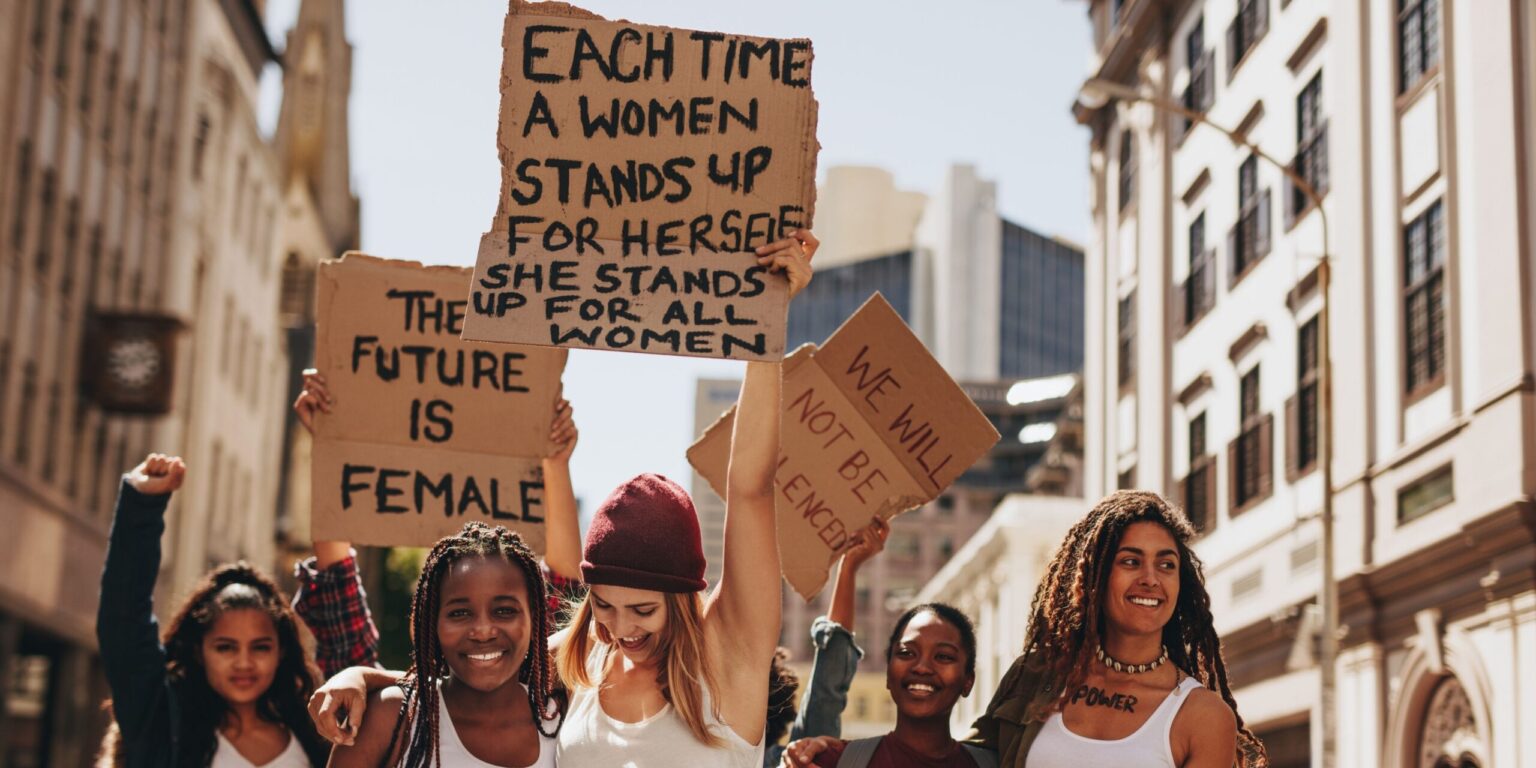Mariah Benson, Senior Correspondent
Date: June 14, 2025
Introduction
On June 14, 2025, a powerful wave of protests led by women erupted across the globe, signaling a unified stand against rising authoritarianism and advocating for the preservation of democratic values. The demonstrations, organized under the “No Kings” movement, spread across over 1,800 cities worldwide, with major rallies held in the United States, the United Kingdom, and other countries. This mass mobilization represents a global outcry for the restoration of civil liberties, the protection of democratic institutions, and the empowerment of women as leaders in political activism.
🌍 Global Mobilization: “No Kings” Movement Gains Momentum
The “No Kings” movement, a grassroots initiative focused on promoting democracy, freedom, and gender equality, gained significant momentum on June 14. In the United States, the protests coincided with two key events: the 250th anniversary of the U.S. Army and the 79th birthday of former President Donald Trump. Critics of these events see them as symbols of an increasingly authoritarian government, with power becoming increasingly concentrated in the hands of a few.
In Washington, D.C., New York, and Los Angeles, protesters gathered to call for a return to democratic norms, rejecting the perceived erosion of individual freedoms. These rallies highlighted growing fears that democratic institutions were being undermined by authoritarian practices. In addition, the timing of the protests on Flag Day, a day commemorating the adoption of the U.S. flag, further emphasized the call to protect the democratic principles that the country’s flag represents.
Across the Atlantic, the United Kingdom saw its own share of protests. A particularly significant incident involved a transgender barrister using a women-only restroom in the House of Commons, which led to widespread public debate about gender rights and sex-based legislation. The ensuing controversy sparked protests across the country, with women demanding greater recognition and legal protections for marginalized genders. This event showcased how gender identity, civil rights, and democratic values intersect, adding another layer of complexity to the broader “No Kings” movement.
Globally, the protests extended beyond the U.S. and UK, reaching Canada, Mexico, Spain, Germany, and other European nations. Cities such as Montreal, Madrid, and Berlin saw massive rallies in solidarity with the movement’s cause. In these countries, demonstrators voiced their commitment to returning to democratic principles, opposing the influence of authoritarian regimes, and demanding greater respect for human rights.
🧑⚖️ Women’s Leadership in Advocacy
A key feature of the protests was the prominent role women played in organizing and leading the demonstrations. One of the most notable leaders was Dana Nessel, Michigan’s Attorney General, who delivered a compelling keynote address at the “No Kings, Just Queens” rally in Midland, Michigan. Nessel’s speech focused on the importance of preserving democratic values and standing up against authoritarianism. She highlighted the role of women in political activism, calling on citizens to engage in their communities and fight to protect their rights.
In addition, a high-profile businesswoman made waves by publishing a full-page advertisement in The New York Times, urging Americans to mobilize against what she called the rise of an authoritarian regime. Her message resonated with many, further encouraging participation in the global protests. The businesswoman’s words reflect the increasing involvement of women in political movements and the power they wield in advocating for change.
📅 Significance of June 14
The date of June 14 holds significant historical meaning in the United States as Flag Day, commemorating the adoption of the national flag in 1777. In 2025, however, it also marked the 250th anniversary of the U.S. Army and the 79th birthday of former President Donald Trump, events which critics argue are emblematic of authoritarianism and the concentration of power in the hands of a select few. The protests were seen as a direct response to what many consider the dangers of an increasingly authoritarian government.
The convergence of these events with the “No Kings” protests provided a potent symbol for a collective call to return to the democratic ideals that many fear are being eroded. The protests, sparked by concerns over power concentration and a perceived disregard for democratic norms, have become a rallying cry for those seeking to reclaim political power and responsibility.
🗣️ Public Reactions and Ongoing Dialogue
The widespread demonstrations have prompted public discussions about the balance between national security and individual freedoms, the role of women in political activism, and the state of democracy in the modern world. Supporters of the “No Kings” movement view the protests as a vital check on government power, calling for more democratic transparency, accountability, and respect for human rights.
However, the protests have not been without controversy. Some critics argue that the large-scale demonstrations could incite civil unrest or deepen societal divisions. Despite this, the June 14 protests underscore the growing influence of women in political discourse, as well as the importance of ensuring democratic principles are upheld. These events have also sparked further conversation on how gender rights and civil liberties intersect with political freedoms in the modern era.
As the “No Kings” movement continues to gain traction, it is clear that the protests of June 14, 2025, are not just a one-time event. They represent the ongoing struggle for justice, equality, and democratic integrity, a fight that women around the world are leading with unwavering determination and resilience.
